Will Gompertz reviews Aladdin starring Christopher Biggins at Churchill Theatre in Bromley ★★★★☆
- Published
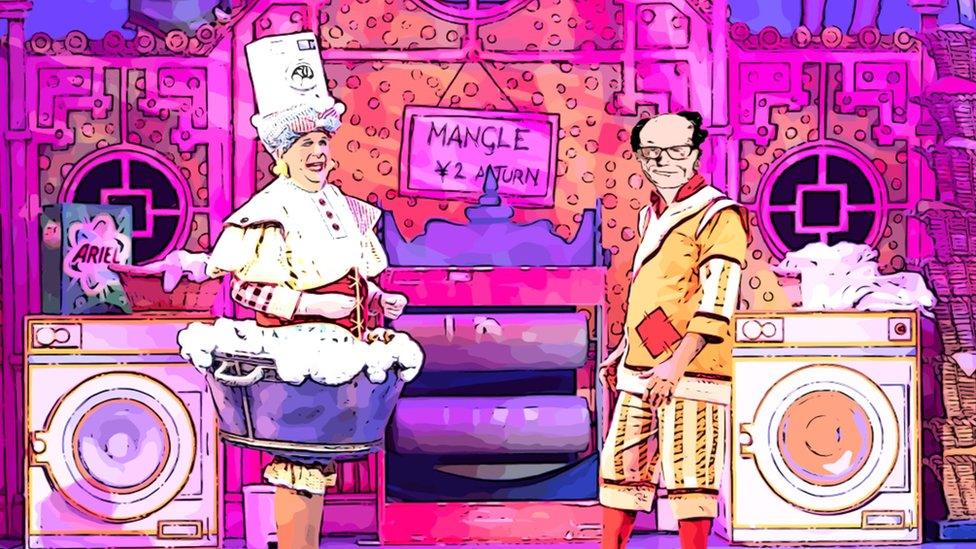
There is nothin' like a dame. Nothing in the world. There's nothing you can name that is anything like a dame.
So true.
Take, for example, the one I saw on Thursday. She had massive cherries on her chest, walked like an injured prop forward and made a string of lewd jokes in front of hundreds of little children.
You'd have thought their parents would be furious, but far from it. They spluttered into plastic cups of prosecco while encouraging their kids to yell at the old lady, who responded by cackling in a deep baritone voice and changing her outfit.
At one point she asked them what she should do with a naughty young man. "Kill him," chorused the kids. "Kill him?" she said, a little taken aback. "You can't kill him, this is a pantomime." And then, as an aside: "Welcome to Bromley."
'Tis the season to be jolly.
And by golly they were jolly at the Churchill Theatre, Bromley, where Christopher Biggins was hamming it up as Widow Twankey in Aladdin, like Harry Kane in the opposition's penalty area.
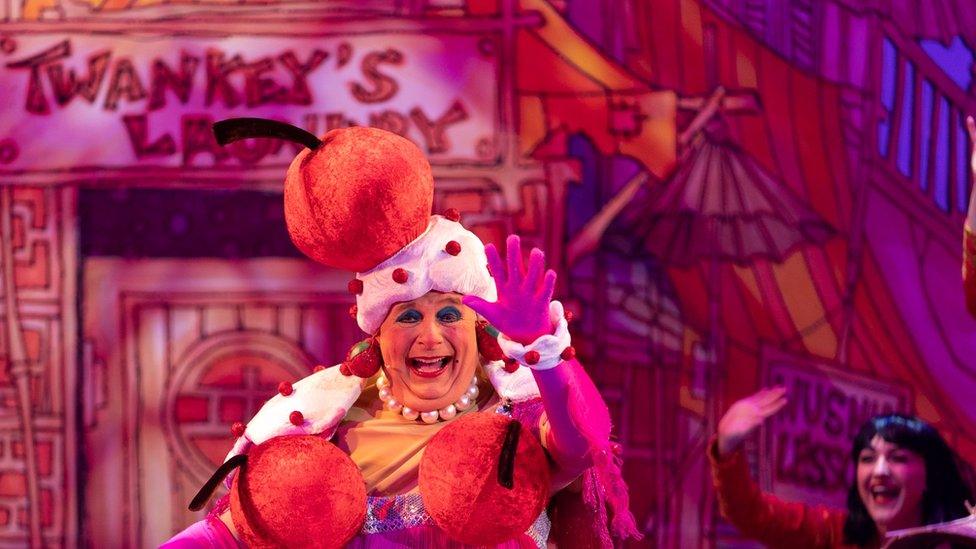
Christopher Biggins, 70, got lots of laughs from the audience as the twinkly and lively Widow Twankey
Musical cues were mistimed and pyrotechnic effects misfired, but nobody in the audience cared a jot: in fact, the more mistakes, the merrier - they added a touch of jeopardy to a plot everybody knew better than the seven times table.
Mr Biggins ruled the roost, entering from stage left and right as stately as a galleon, armed with a knowing smile and glinting eye.
This is his 35th appearance as the dame in a panto career that goes back to 1974, when he was a sprightly 26-year-old actor making his way with TV roles in Upstairs Downstairs and in Porridge, alongside Ronnie Barker.
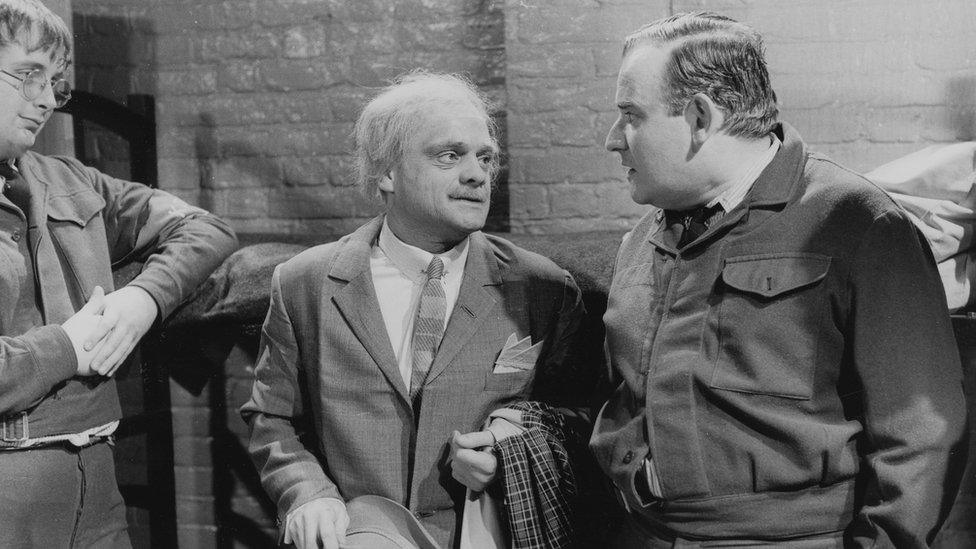
Christopher Biggins, David Jason and Ronnie Barker in the hit sitcom Porridge in 1977
Not much has changed in the world of panto over the years.
The genre can be traced back to ancient Roman theatre - but not necessarily with the lame jokes, dreary songs, and double-entendres that are the staple of today's slapstick shows.
That's not a criticism; it's the point.
The challenge for panto performers is to take those modest ingredients and bring them to life for an audience which has paid good money for a good laugh.
It ain't easy, although Biggins and his merry band make it appear so as they go through the standard participatory routines, such as getting the audience to chant a phrase on cue, which in this instance was:
"Don't touch the prawn balls.
Leave the prawn balls alone!"
I mean, what are prawn balls? Did I miss that party?
And why is Widow Twankey reading out the names of the show's sponsors, giving birthday shout-outs, and then randomly firing sweets into the audience - as if they needed any more sugar. Hasn't she got a business to run?
She does. But then, so does the theatre.

A fun-filled panto is a seriously important event for regional theatres across the country. It is often the show that keeps them going through the rest of the year, balancing books that would otherwise tilt dramatically into the red.
The show might appear flippant compared with a Shakespearian tragedy at the National Theatre, but it requires equal skill and talent to pull it off.
One famous dame does not a successful panto make. She needs back-up.
The cast of Aladdin delivers.
Rikki Jay gives us a warm, energetic Wishee, getting the audience going when it is starting to flag - even though some of his material has long passed its sell-by date (a joke about an apple and an orange needs cutting).
And Max Fulham brings a first-class ventriloquism act to his role as Washee.

Rikki Jay, who as Wishee, was a natural at engaging both children and grown-ups

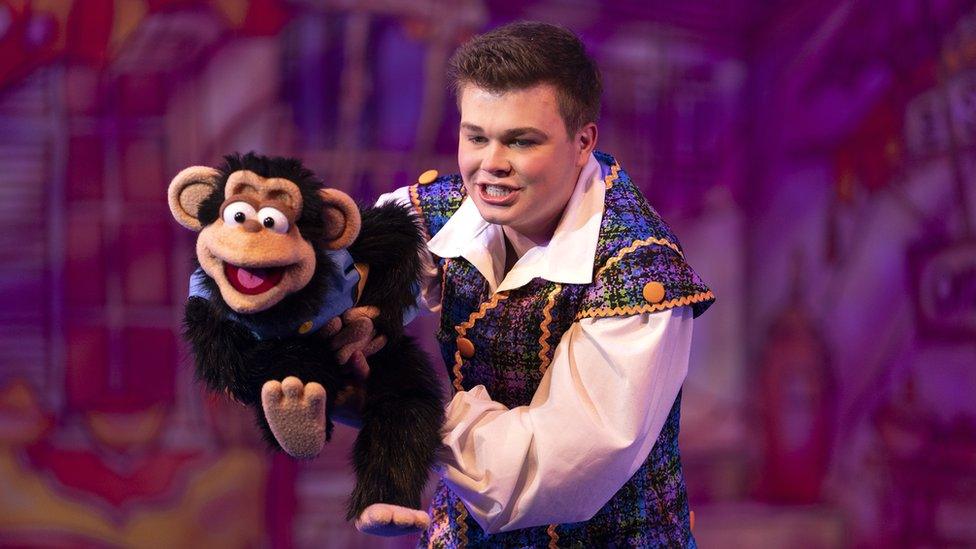
Max Fulham, as Washee, showed his superb ventriloquy skills with Gordon the monkey
Ryan O'Gorman is a suitably malevolent Abanazar, the pantomime villain, and Yazdan Qafouri does well with a title role that doesn't offer many chances to shine beyond rubbing his rusty lamp.
Oh yes he does!
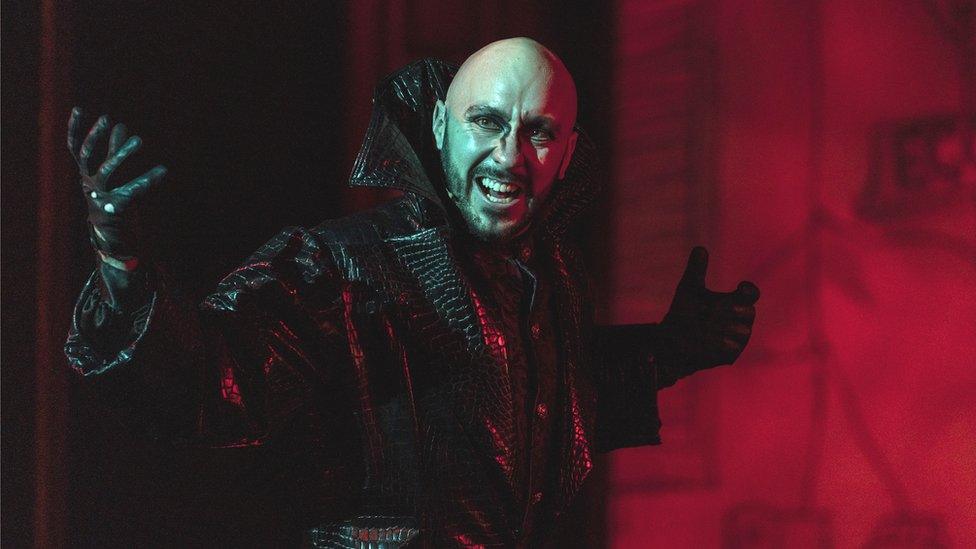
Ryan O'Gorman as the dastardly Abanazar

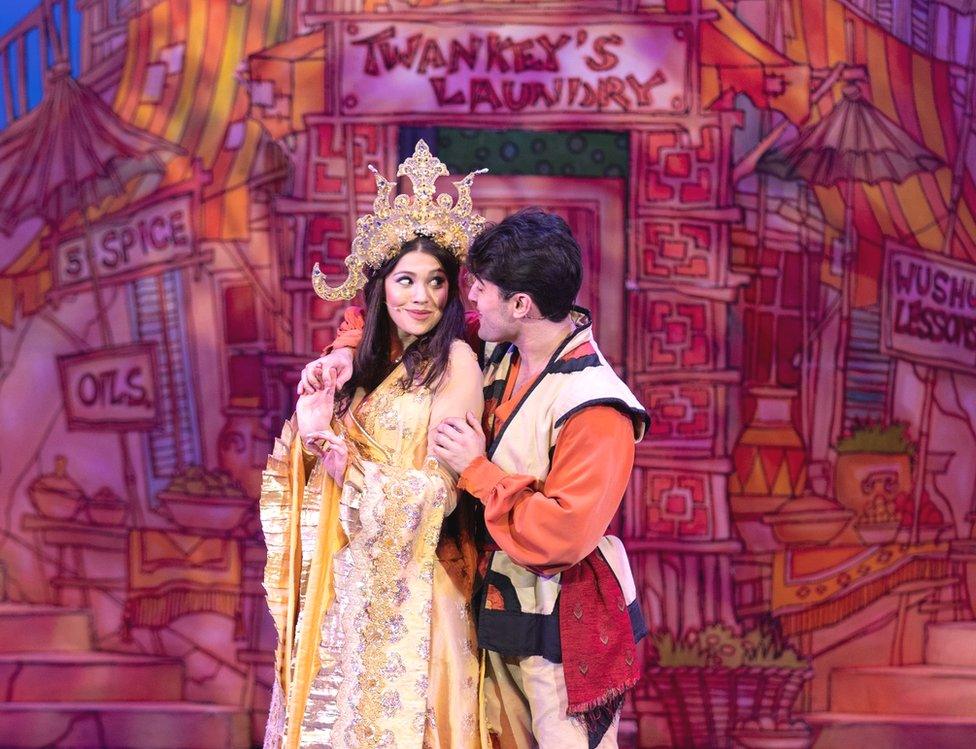
Emily Hawgood is Princess Jasmine to Yazdan Qafouri's Aladdin

Panto is a critical anomaly. It's part-theatre, part-variety, part-music hall entertainment.
The best way to judge such a show is by the reaction of the audience, many of whom will never have been to the theatre before (the majority sounded as if they'd collectively inhaled the contents of Mr Biggins' helium balloons).
On that basis, Aladdin is a critical hit.
The kids laughed a lot, shouted a great deal, and talked through the bits they found boring, which tended to be the musical numbers (not helped by a sound mix that drowned out the singers).
I reckon they'd give it four stars.
Now, how am I going to get my hands on Christopher Biggins' prawn balls…?
Recent reviews by Will Gompertz
Follow Will Gompertz on Twitter, external
- Published26 December 2018

